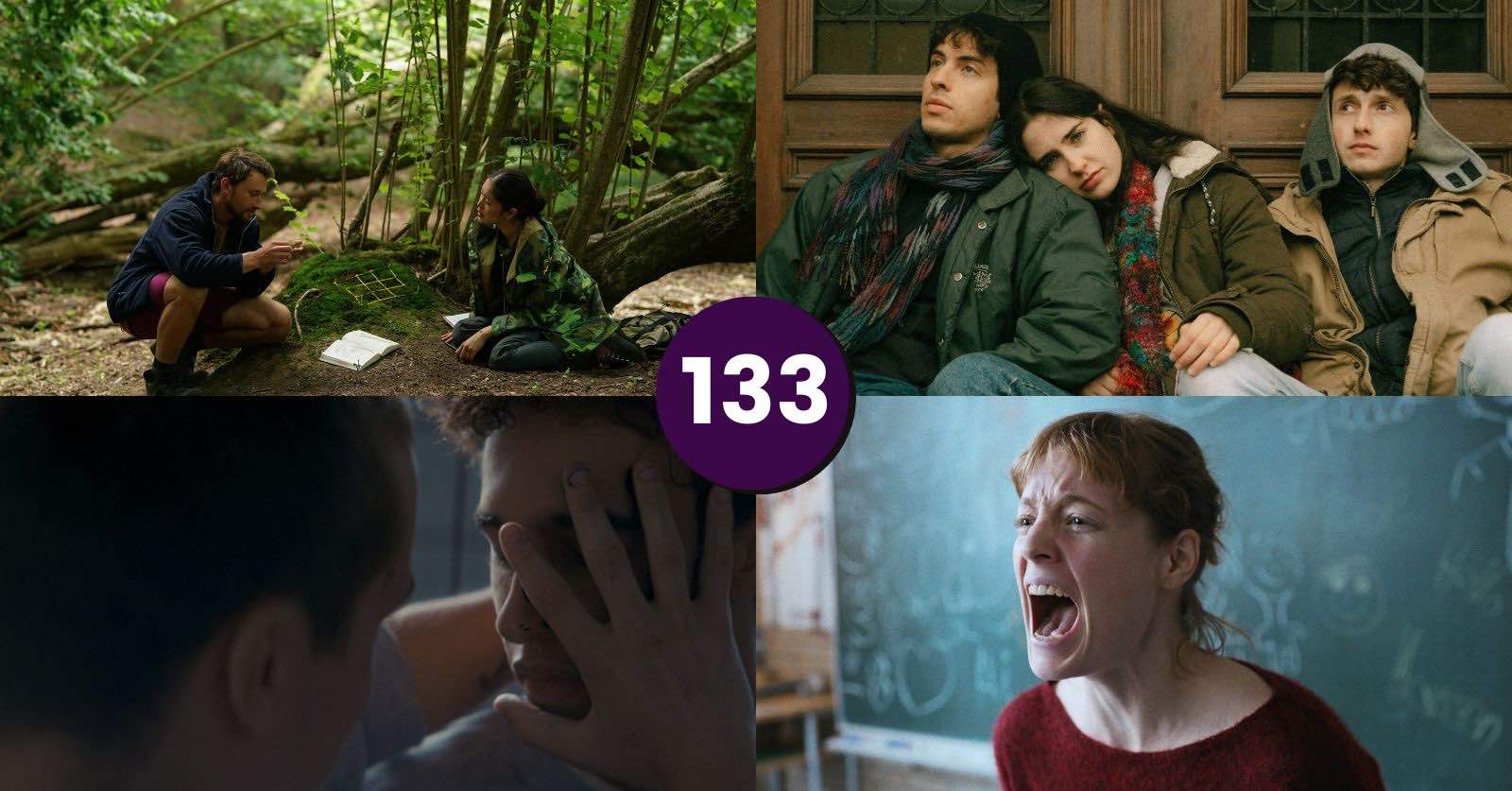In this episode of the podcast, Editor-in-Chief Alex Heeney goes solo to discuss the highlights of the 2023 Berlinale film festival, including Bas Devos’s award-winning Here, as well as The Teachers’ Lounge, Delegation, The Quiet Migration, and more.
Don’t miss a single episode. Subscribe to the podcast now.

On this episode: the Berlinale 2023 podcast
- 0:00 Intro to the Berlinale & the episode
- 4:12 Here (Belgium, dir. Bas Devos)
- 12:20 The Teacher’s Lounge (Germany, dir. İlker Çatak)
- 16:59 The Quiet Migration / Stille Liv (Denmark, dir. Malene Choi)
- 23:17 Intro to the Generation sidebar
- 25:30 Delegation (Israel/Poland/Germany, dir. Asaf Savan)
- 30:15 Le Paradis / The Lost Boys (Belgium/France, dir. Zeno Gratan)
- 37:20 Wrap up
First, Alex discusses the best film of the festival she saw, Here (dir. Bas Devos), which screened in the Encounters section where it won the top prize. Next, Alex discusses two films from the Panorama sidebar (the not quite prestigious enough for competition sidebar): award winner The Teachers’ Lounge and the low key Danish film The Quiet Migration. Finally, Alex discusses two films from the Generation sidebar, a sidebar of Young Adult films for Young Adults: Delegation and Le Paradis (English title: The Lost Boys).
Show Notes on the Berlinale 2023 podcast
- Read our interview with the director and star of Ninjababy, a Berlinale 2021 Generation program highlight
- Listen to our podcast on Ninjababy
- Read our interview with the director of Brother’s Keeper, a Berlinale 2021 Panorama film which, like The Teachers’ Lounge, is also about systemic injustices in the educational system.
- Read our review of Magnus von Horn’s The Here After, which would make a great double feature with the 2023 film Le Paradis (The Lost Boys).
- Listen to our podcast on My Small Land, which screened in the Generation sidebar at Berlinale 2022. Like this year’s The Quiet Migration, My Small Land also tackled the story of a young immigrant in a country where they grew up not looking like the majority of the population.
- Read and listen to all of our Berlinale coverage from this year and past years.
Related episodes to the Berlinale 2023
- Ep. 83: Berlinale 2021 Part 1: The sidebars
- Ep. 84: Berlinale 2021 Part 2: The Competition
- Ep. 125: Berlinale 2022
- Ep. 101 Magnus von Horn’s films: The Here After and Sweat
Listen to all the related episodes. Become a member.
For exclusive access to all of our episodes, including all of our in-between season episodes:
Episode Credits
Host Alex Heeney is the Editor-in-Chief of Seventh Row. Find her on Twitter @bwestcineaste.
Theme music by Chuchulahn O’Byrne.
This episode was produced and edited by Alex Heeney
Episode transcript
The transcript for the free excerpt of this episode was AI-generated by Otter.ai.
[fusebox_transcript]

